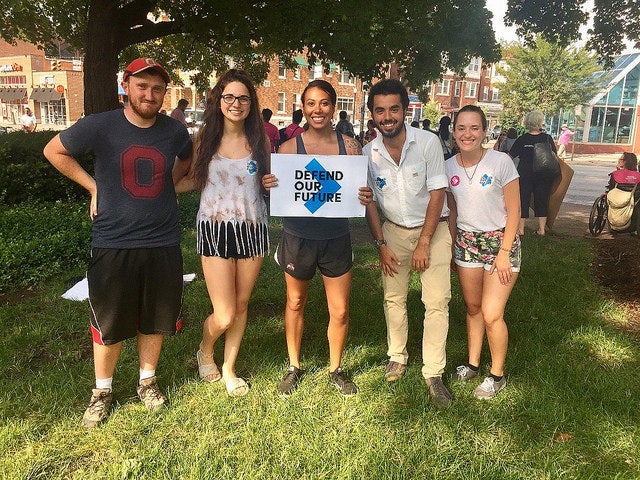Everyone is talking about electric vehicles (EVs). From postal service fleets to school buses to personal cars, everyone emphasizes the need to move away from gas-powered vehicles – but why is this such a sought-after climate solution?
Breaking it down
First, the transportation sector produces the largest share of CO2 emissions in the U.S., with over half of its emissions from personal vehicles. So, electrifying cars would have a HUGE impact on reducing U.S. emissions.
Second, reducing the number of gas-powered cars on the road also means reducing the amount of pollution in the air. This is particularly important in environmental justice communities, often near busy roadways and shipping routes. The American Lung Association estimates that transitioning to 100% clean vehicles would save 110,000 lives and avert 2.7 million child asthma attacks over the next 30 years.
Finally, owning EVs will save you money while benefitting our planet. Depending on what state (and what car), driving an EV can save you tens of thousands of dollars over its lifetime! Even EVs that qualify for the $7,500 tax credit can feel very pricey, especially for young folks. But when you consider zero gas costs and reduced maintenance costs, data like this is essential to know to plan for future purchases in an informed way.
Why it matters to us
As young people, we have the most at stake. How fast we can transition to a 100% clean economy has a direct impact on what our future will look like. EVs are a technology we have right now that can help prevent catastrophic climate warming and improve the health of communities. Building public support for EVs, regardless of whether you own one, sends a message to car companies to keep innovating and the government to continue incentivizing production, charging infrastructure and ownership.
We need to be loud
While we certainly need an “all of the above” approach to solve the climate crisis, it is a no-brainer that EVs will be a large part of reducing carbon emissions.
So, speak up! Talk to your family, friends, and neighbors about buying electric, share resources and factsheets, combat misinformation on social media, and keep telling elected and appointed officials how much you support clean energy incentives.

